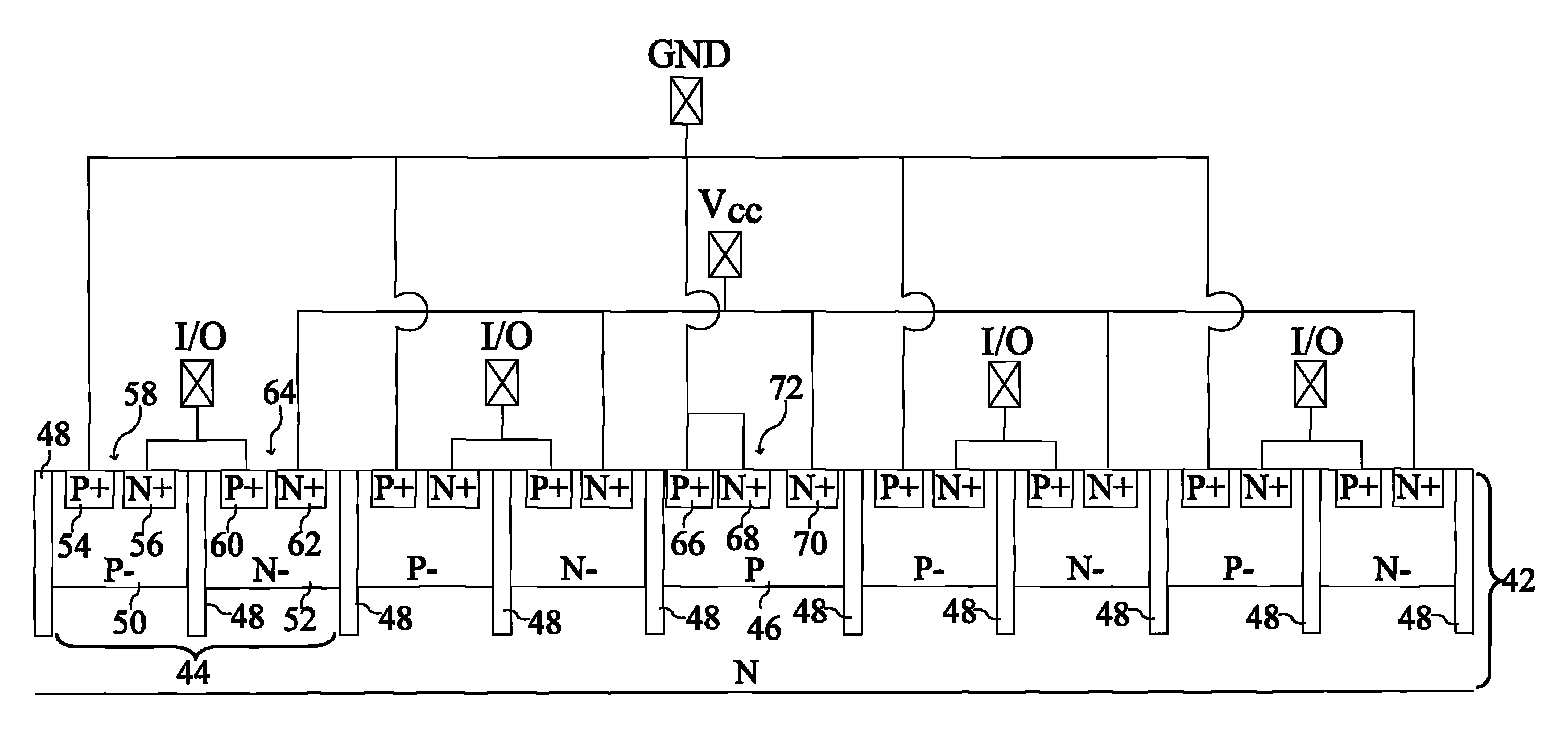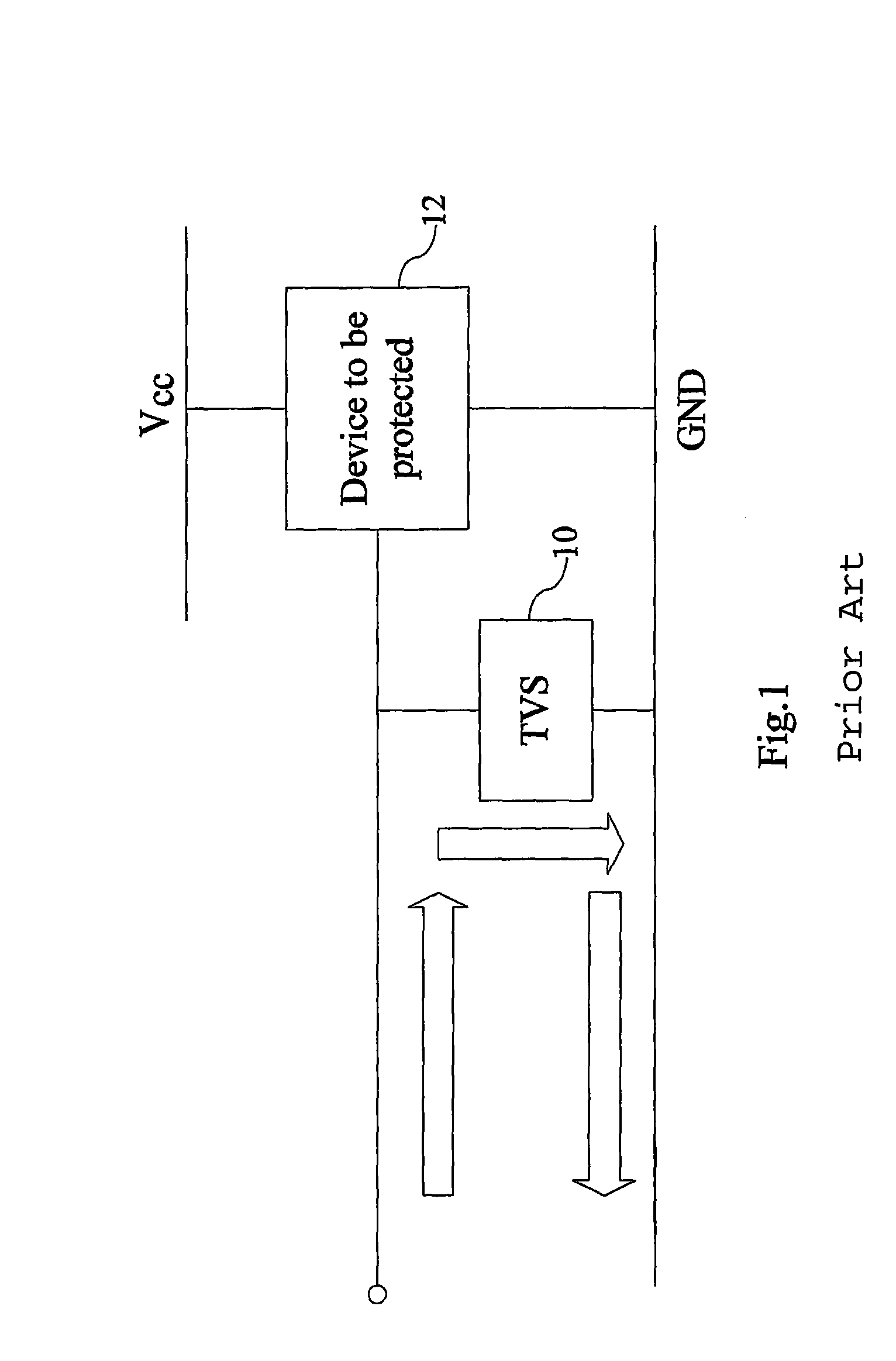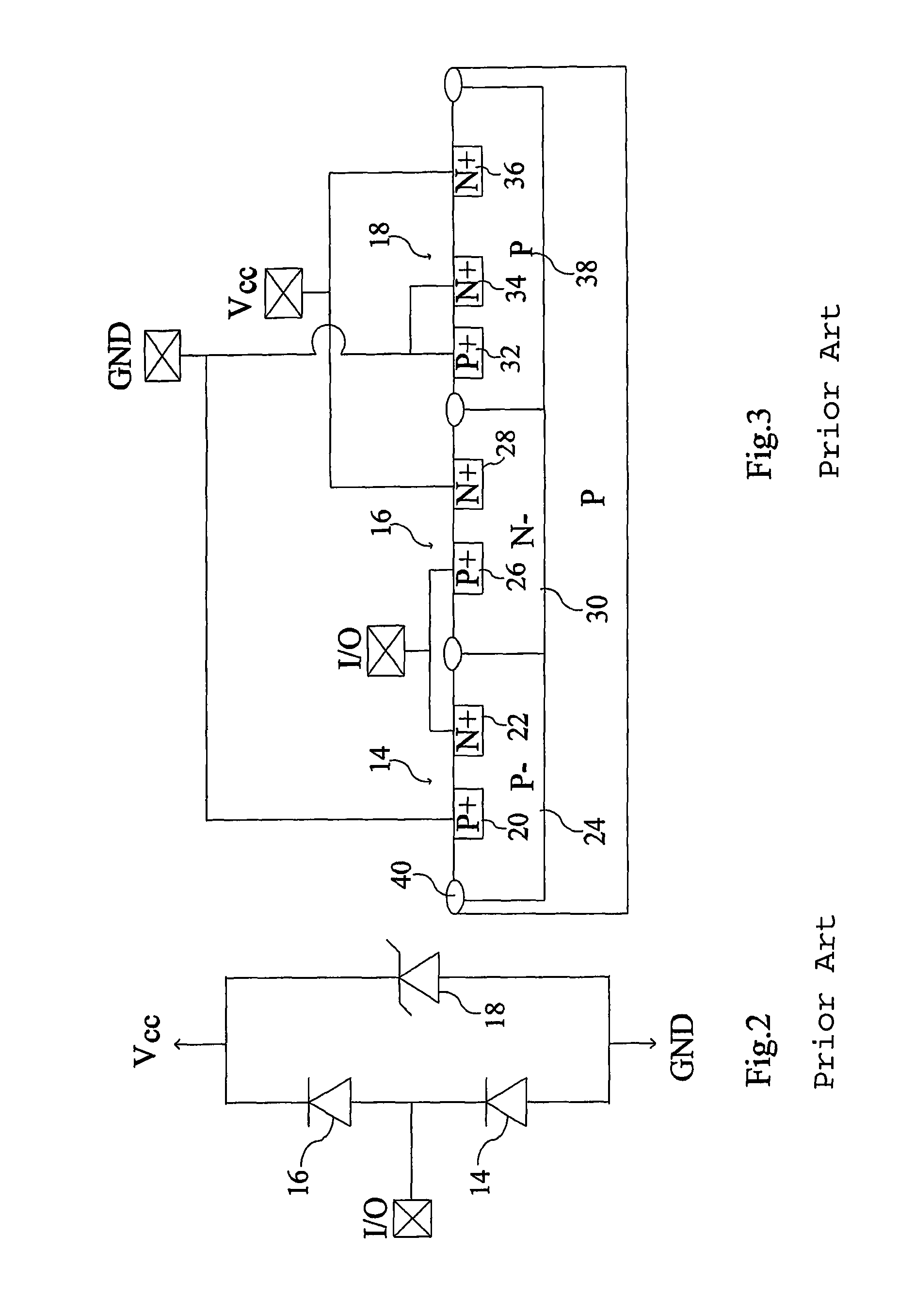Lateral transient voltage suppressor with ultra low capacitance
a transient voltage and suppressor technology, applied in the direction of emergency protective circuit arrangements, emergency protective arrangements for limiting excess voltage/current, emergency protective arrangements, etc., can solve the problems of high input capacitance of traditional tvs, esd (electrostatic discharge) events, and the function of these electronics could be reset or even damaged under esd events, so as to reduce the input capacitance , the effect of low input capacitan
- Summary
- Abstract
- Description
- Claims
- Application Information
AI Technical Summary
Benefits of technology
Problems solved by technology
Method used
Image
Examples
first embodiment
[0021]Refer to FIG. 4 and FIG. 5, wherein FIG. 5 is an equivalent circuit of FIG. 4. The transient voltage suppressor (TVS) of the present invention comprises a first conductivity type substrate 42. At least one diode cascade structure 44, a second conductivity type well 46, and a plurality of deep isolation trenches 48 are all arranged in the first substrate 42. The second conductivity type well 46 neighbors the diode cascade structure 44. For much reduced the input capacitance of the present invention, the diode cascade structure 44 comprises at least one second conductivity type lightly doped well 50 arranged in the first substrate 42 and at least one first conductivity type lightly doped well 52 arranged in the first substrate 42. In the first embodiment, the numbers of the diode cascade structure 44, the second conductivity type lightly doped well 50, and the first conductivity type lightly doped well 52 are all one, which is used as an example. And, for example, the first cond...
second embodiment
[0030]The second embodiment is shown by another conductivity type. When the first conductivity type substrate 42 and the first conductivity type lightly doped wells 52 are respectively a P-type substrate and P-type lightly doped wells, the second conductivity type lightly doped wells 50 and the second conductivity type well 46 are respectively N-type lightly doped wells and an N-type well. And then, the first, second, third, and fourth heavily doped areas 54, 56, 60, and 62 of each diode cascade structure 44 and the fifth, sixth, and seventh 66, 68, and 70 heavily doped areas correspond to the conductivity type of the substrate 42 and each doped well 50, 52, and 46 to be changed. Beside, the first heavily doped area 54 of each diode cascade structure 44, the fifth and sixth heavily doped areas, 66 and 68 are connected with the high voltage Vcc. The fourth heavily doped area 62 of each diode cascade structure 44 and the seventh heavily doped area 70 are connected with the low voltage...
third embodiment
[0032]In the third embodiment, the left most second conductivity type lightly doped well 50 is regarded as the first second conductivity type lightly doped well 50, and the most right first conductivity type lightly doped well 52 is regarded as the last first conductivity type lightly doped well 52. The first heavily doped area 54 of the first second conductivity type lightly doped well 50, the fifth and sixth heavily doped areas 66, and 68 are connected with the low voltage. Also, the fourth heavily doped area 62 of the last first conductivity type lightly doped well 52 and the seventh heavily doped area 70 are connected with the high voltage Vcc, whereby the first and second heavily doped areas 54 and 56 of the second conductivity type lightly doped wells 50, and the third and fourth heavily doped areas 60 and 62 of the first conductivity type lightly doped wells 52 are all biased.
[0033]A deep isolation trenches 48 located between the second conductivity type lightly doped well 50...
PUM
 Login to View More
Login to View More Abstract
Description
Claims
Application Information
 Login to View More
Login to View More - R&D
- Intellectual Property
- Life Sciences
- Materials
- Tech Scout
- Unparalleled Data Quality
- Higher Quality Content
- 60% Fewer Hallucinations
Browse by: Latest US Patents, China's latest patents, Technical Efficacy Thesaurus, Application Domain, Technology Topic, Popular Technical Reports.
© 2025 PatSnap. All rights reserved.Legal|Privacy policy|Modern Slavery Act Transparency Statement|Sitemap|About US| Contact US: help@patsnap.com



